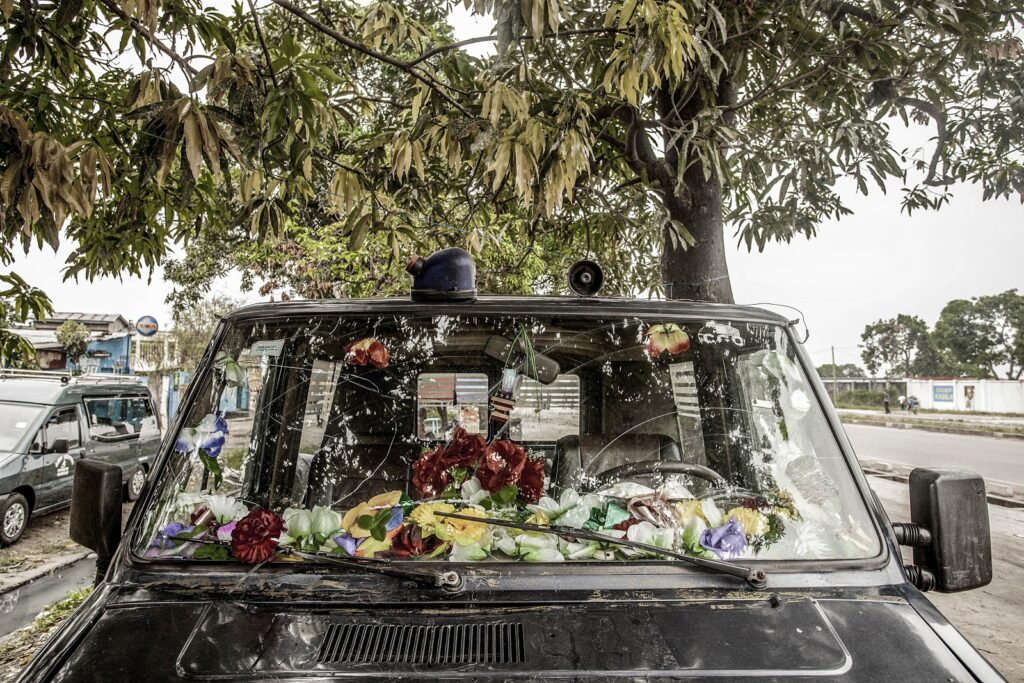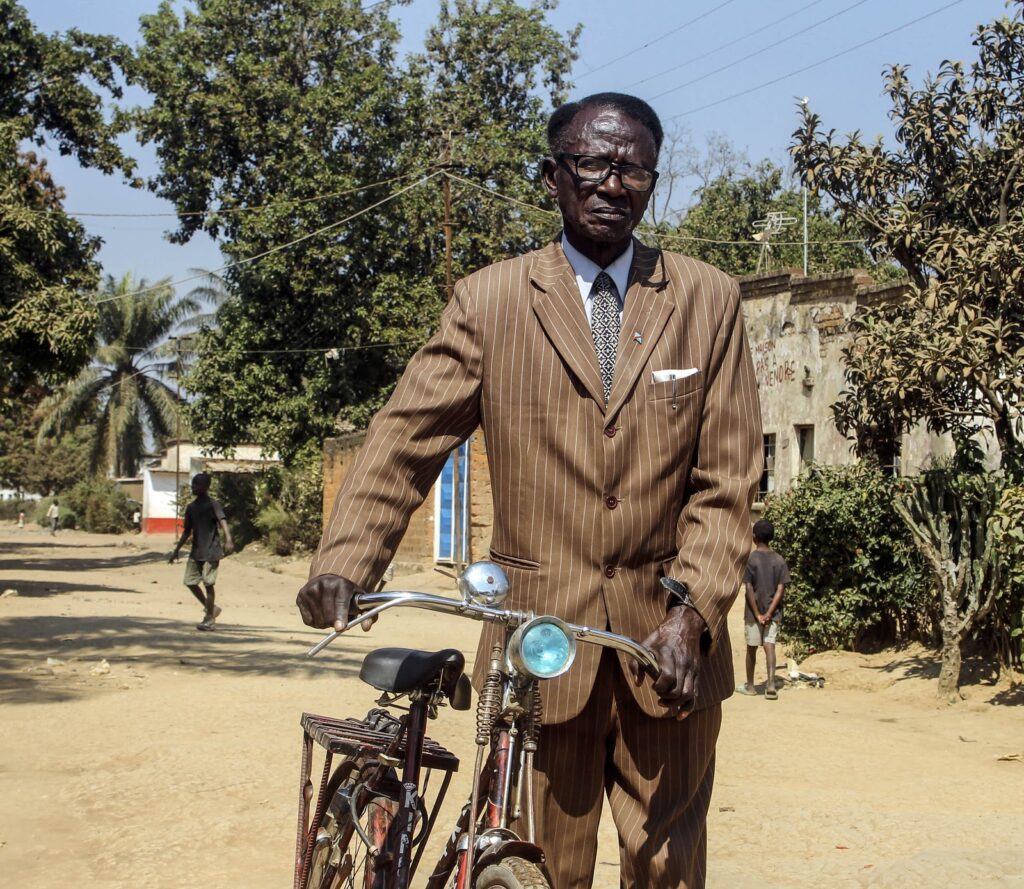Adeola Oagunju’s Higher Self, from the series Navigating a Dark Space (2017)
The Journey: New Positions in African Photography profiles 17 photographers who passed through the Photographers’ Masterclass, a decade-long professional mentorship founded by Simon Njami in conjunction with the Goethe-Institut in 2008. Diverse in style, format and outlook, the work of these photographers from the Democratic Republic of the Congo, Ethiopia, Ghana, Côte d’Ivoire, Kenya, Mozambique, Nigeria, South Africa and Sudan encapsulates some — not all — of the ambitions, enthusiasms and possibilities of photography being made on the African continent.
Collectively, the 17 portfolios occupy nearly two-thirds of this book. It couldn’t be otherwise. Complementing this diverse showcase of practice are 13 essays. Similarly varied in style and method, each essay grapples with a leitmotif relevant to understanding photography in this particular historical moment. Most of the essays were written by masterclass mentors, being industry professionals who were willing to share their thoughts and ideas on photography with a select group of young photographers.
 Funeral coach for rent along Avenue Bypass, municipality of Lemba, 2013 – 2015 (Sammy Baloji)
Funeral coach for rent along Avenue Bypass, municipality of Lemba, 2013 – 2015 (Sammy Baloji)
Bookmaking, much like exhibition making, is a dynamic activity. As this book project evolved from raw concept into a printed artefact, ideas were stress-tested and parameters tweaked. Being a book about new positions in contemporary African photography, midway into the design and formatting of The Journey it was decided to invite younger writers to spar with the ideas and/or works emanating from the masterclass project. This invitation expanded the scope of the book, in particular by introducing additional themes, ideas and trajectories. For the most part, this book remains a showcase of masterclass alumni, but it also includes work by non-participants, photographers whose work is nonetheless emblematic of the zeitgeist and discursive spirit of this itinerant exchange project.
Intense conversation was central to the workings of the masterclass and informed its first publication, Just Ask!: From Africa to Zeitgeist (2014). Where this book is rooted in evidence and analysis, Just Ask! was purposefully didactic. What is a landscape? What is a story? What is a frame? The answers to these questions were proposed in an alphabetical listing of key words and concepts relevant to understanding photography. The Journey also aims to be instructive, albeit to a larger community of readers, being anyone interested in the great flourishing of photography across the African continent.
 Kayebe Kilombo, from A Life after Death (2012), in which Georges Senga imagines a contemporary life for Patrice Lumumba. (Georges Senga)
Kayebe Kilombo, from A Life after Death (2012), in which Georges Senga imagines a contemporary life for Patrice Lumumba. (Georges Senga)
It is a truism of photography globally that autodidacts are as numerous as formally trained photographers. But what does it mean to be a self-taught photographer on a continent with so few photography schools? Is photography simply a set of technical procedures that can be learnt from a YouTube tutorial? How important is writing to seeing? Which writing matters? Are there discourses particular to photography from Africa?
The masterclass was never pitched as a formal school; rather, it served as a mobile academy where these and many other questions could be rigorously debated among established and emerging professionals. Speaking and listening carried equal weight. The tension between history and memory is important to appreciating the ambitions of The Journey, which is more than mere document of a project. In her essay about memory, photo critic and masterclass mentor Frédérique Chapuis quotes French poet Charles Péguy. History is longitudinal, thought Péguy, while memory is vertical. “History essentially consists of passing along the event. Being inside the event, memory essentially and above all consists of not leaving it, staying in it and going back through it from within.”
Even though this book appears after the completion of the final masterclass, it is not an accessory or adjunct to that energetic project. This book cannot be decoupled from the drives and enthusiasms of the masterclass. It is, we propose, written from inside the event of memory.
This article is taken from The Journey: New Positions in African Photography, edited by Simon Njami and Sean O’Toole (Goethe-Institut/Kerber Verlag). The book is available from Bridge Books